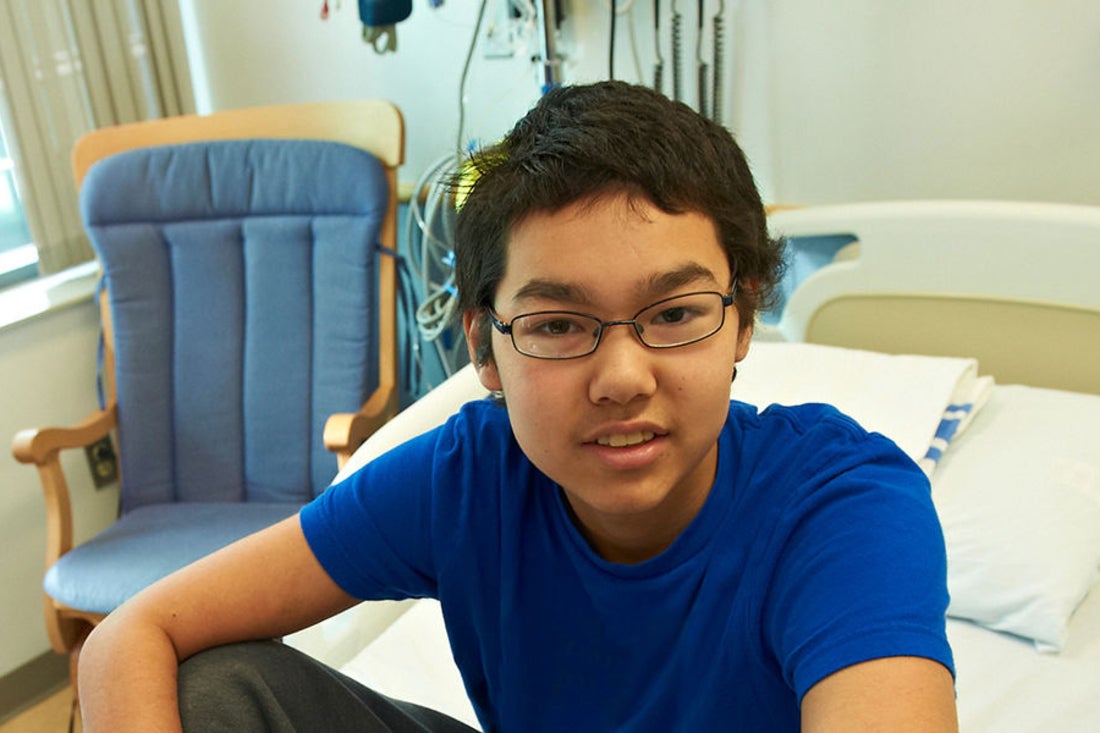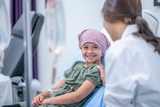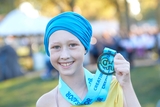Experimental Therapy for Pediatric Cancer at The Children's Hospital of Philadelphia
Elizabeth Fox, MD: Here at the Children's Hospital of Philadelphia, we are one of the leading institutions in enrollment on early phase clinical trials in the country. Developmental therapeutic section here is a research team that really works together to bring new therapies to children with cancer through clinical trials. Our team is composed of clinicians, physician scientists, nurses, social workers, pharmacists, and a number of other staff who really help us coordinate the clinical trials so that we can bring them safely to children. Clinical trials are research studies where we are trying new agents in children with cancer to determine if they're safe, they have activity, or they provide benefit to children with cancer. For many of the therapies that we use in clinical trials, they are not FDA approved as safe and effective drugs yet. So we often refer to them as investigational drugs or new agents.
Susan Rheingold, MD: A lot of these patients come from all over the country and all over the world to get these drugs.
Elizabeth Fox, MD: Developmental therapeutics, especially in children, has changed dramatically in the last ten years. We are now bringing new agents to children more quickly than we have in the past, and more children are receiving new agents than ever before.
Susan Rheingold, MD: Sometimes when children relapse, or they relapse a second time, their doctors say to them, "Oh, you're not sick enough for experimental therapy." But experimental therapy in this day in age is not just more of the same; it's completely new therapy. You need experimental therapy to come at it from a different direction to try to attack it in a completely different way than classic chemotherapy ever attacked it.
Stephan Grupp, MD, PhD: The key here, the intent,is to preserve the option for as many treatment possibilities for any given patient as we can. And the earlier we hear about it, the more we can advise about what may or may not be available.
Susan Rheingold, MD: If families wait too long and they wait until the child is sick enough to receive experimental therapy, unfortunately, the child often has already had too many complications to be eligible to get that experimental therapy. That doctor that first sat down with you and told you you had leukemia is a doctor that's really special, and it's somebody who you trust, and it's somebody who has to be on board with this next step, this experimental therapy with you.
Stephan Grupp, MD, PhD: So I think the idea is that we hear early about patients who have either recurrent or high-risk disease, we have entered into a dialogue of what might or might not be appropriate, we see the patient in second opinion here, and then we let the patient go back to their treating physician for any appropriate chemotherapy and then bring them back for any potential experimental therapy that might benefit that patient.
Susan Rheingold, MD: We're constantly communicating, whether by phone or by e-mail, with your oncologist who sent you here because they're the ones that are going to take care of you. We need to have a good working relationship with the entire team to get the child the best therapy possible.
Kari Whitehead (mother of Emily): When she relapsed the first time we came to see Dr. Rheingold and she said that we could stay at our local hospital because she would receive the same treatment that they would offer here. And she didn't feel at that point there was anything different that they could do here. So we did stay at our local hospital, but then she relapsed again in February 2012. And so it was at that point that we made the decision that we needed to go somewhere else where we needed to try something new and something different. And Dr. Rheingold at that point said it's time to come here to CHOP. We still felt like by enrolling her in the trial, even if it didn't work, it would give them a little bit more information. And from that hopefully they would learn something and be able to help other children. You know, but we entered her into the trial really hopeful. We just had a really — a lot of hope, and from the very beginning we just —we really had a good feeling about it. We said, you know, it just has to work. It has to work for Emily, and it did.
Elizabeth Fox, MD: So we're all working together to try to cure childhood cancer, but it is a tough fight. And for some families the benefit comes from knowing that their child has participated in the clinical trial and helped in that fight. Every child who participates in a clinical study is actually helping to fight childhood cancer. But in reality, most of these patients are not cured by new therapies. We are however working to make safer, better drugs for children with cancer.





